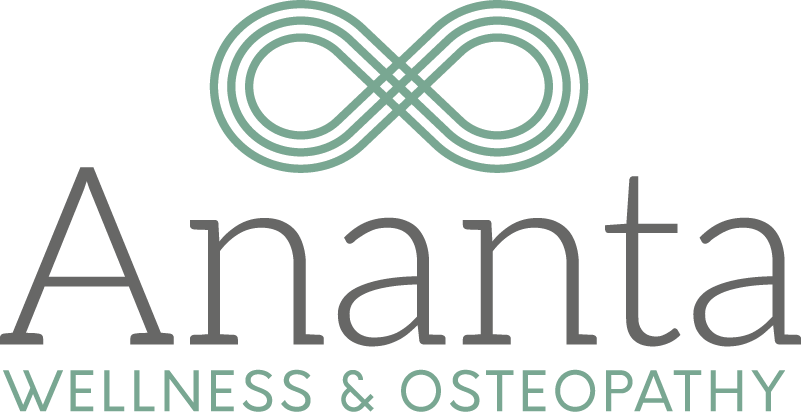The vagus nerve is gaining popularity in today’s media. So why is it so important? We will work to answer that today! We talk a lot about our body’s stress response, driven by our sympathetic nervous system and made up of our ‘fight or flight’ response. For example, when you see a bear, do you stay and fight or do you run away?! Your body’s stress response kicks in in that moment – your heart rate increases, your lungs expand to bring more oxygen into your body and you stop digesting food to assist in bringing vital blood back towards the heart and lungs. This response is effective in the short term (until the bear leaves!); however, it can have detrimental effects if we remain in this state for longer periods of time. Now the bear may seem like an extreme example, but our stress response can also be triggered by a hard deadline at work, time constraints throughout the day, sitting in traffic, or a difficult conversation with a friend/family or coworker, the list can be endless. So how does the body counteract this stress response? – With the parasympathetic nervous system. The parasympathetic nervous system is more of a ‘rest and digest’ kind of response system and opposes sympathetic stress. It is also where all the good healing occurs! Think a decrease in heart rate, regulation of insulin and glucose (blood sugars), increased gut motility and gut juices (gut healing!), inflammation suppression and ensuring the integrity and harmony in the gut/brain interaction…not to mention, keeping anxiety and depressive symptoms at bay. The vagus nerve is an integral part of our parasympathetic nervous system and our overall mind-body health.
Anatomy
We have 12 pairs of cranial nerves and the vagus nerve is considered the tenth cranial nerve pair. The vagus nerve is appropriately named as vagus means to wander, and that’s exactly what this nerve does. The vagus nerve is one of the longest cranial nerves and it travels a great distance. It originates from the brainstem and exits out the base of the skull through a hole called the jugular foramen. It travels down the neck, into the thorax, goes through the thoracic diaphragm and enters into the abdomen where it supplies nerve information to a good number of our digestive organs. Are you impressed at how far this nerve travels? You should be!! Think of the vagus nerve as our mind-body connection as it provides information from the body to the brain and from the brain to the body. The vagus nerve also gives rise to a few notable nerves, including the recurrent laryngeal nerve and the cardiac nerves.
Job Duties
The vagus nerve has both sensory and motor job duties. It provides sensory information to the brain from the pharynx and the larynx, in addition to the thoracic and abdominal organs. It provides sense of taste information from the tongue and taste buds to the brain. It has motor functions for the palate and the pharynx, has an impact on phonation, and impacts the tongue muscle. This is in addition to being the parasympathetic innervation for the heart, intestines, stomach, liver, pancreas, gallbladder, kidneys, ureter, and spleen.
Signs and symptoms of vagus dysfunction
Vagus nerve dysfunction can present in many different ways. For example, some people may describe irritable bowel type symptoms or GERD (gastroesophageal reflux disorder) symptoms. Others may notice weight gain, as the vagus nerve is involved in sending a message to the brain about the feeling of being full. Others suffer from anxiety and/or depressive type symptoms. For some they describe a brain fog where they have trouble with concentration or learning new information. Vagus nerve dysfunction can be linked to autism or ADHD type symptoms. Others may describe symptoms of ringing in the ear (tinnitus) or sleep dysfunction. Migraines have been linked to vagal nerve dysfunction and even hormonal imbalances. Frequent throat clearing or coughing issues can also be linked to a vagus nerve in dysfunction. Another one, is a general feeling of unwellness which can be indicative of vagal nerve dysfunction.
How does osteopathy help?
Your osteopathic practitioner will ensure there are no biomechanical factors that are constricting the nerve, especially as it traverses a long way from the head, through the neck, thorax and into the abdomen. For example, any jaw alignment issues (TMJ) can impact the pathway of the nerve. If the muscles in the neck are tight (whose aren’t?) this can constrict the vagus nerve as well. If there’s tension between the shoulder blades or into the diaphragm, this can have an impact on the nerve function. Not to mention, if any of the organs or viscera that the nerve innervates are in dysfunction, this will have an impact on its function.
Osteopathic manual practitioners are also a resource to help you to find homeostasis in the body. If your body is actively in a sympathetic state, then your parasympathetic nervous system is turned off or inhibited. It’s an all or nothing type system and the sympathetic nervous system is the driver of disease state. Your osteopathic practitioner helps you to find the balance between the two and if you are in sympathetic overdrive, we help you to re-engage the parasympathetic nervous system. This in turn helps the body manage its blood pressure levels, maintain your body temperature, your electrolyte levels, fluid levels, body weight, in addition to decreasing your heart rate, suppressing inflammation and having a positive impact on your immune system. In this parasympathetic state, this is where healing occurs!
Your osteopathic practitioner can help also be a resource in helping your regulate your body’s HPA axis (also known as the hypothalamic-pituitary-adrenal axis) which is essential in addressing any hormonal imbalances. By addressing the vagus nerve, studies have shown it decreases the amount of chronic inflammation in the body. In addition, the stronger our vagal response is, the quicker we recover from illness, injury and stress.
Can I treat vagal dysfunction on my own?
Yes! Deep diaphragmatic breathing focusing on the exhale can help. Breathe in to a count of four or more and breathe out to the same count focusing on exhaling all the air from your lungs. Do 6-10 of these and this helps to regulate your vagus nerve.
Any other types of activities that bring about a sense of calm or bring you joy-think meditation, reflexology, yoga, connecting with family/friends, laughter, a religious practice, find what works for you!
According to the Journal of Nutrition (March 2009, volume 123, issue 3), zinc has been shown to increase vagal stimulation. Being mindful that the study was completed with rats, we can draw our own conclusions about emerging links between nutrition and the vagus nerve.
Hopefully we’ve helped you to understand the benefits of ensuring your vagus nerves are functioning optimally!! If you have questions or want to chat further, do not hesitate to reach out. Have a good weekend!


I am an Afib patient and looking for Vegas stimulants to reduce the incidents. I have heard about “the clip” but I don’t know where to get it in Vancouver.
Hope you can help me. My phone number is 604-889-5758
Thanks
Hey There…unfortunately, we do not know where to get “the clip”. We offer only hands-on therapeutic treatment here at Ananta. Good luck with your search.